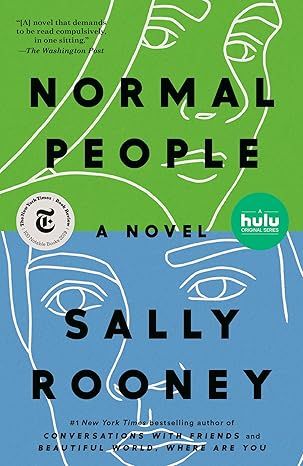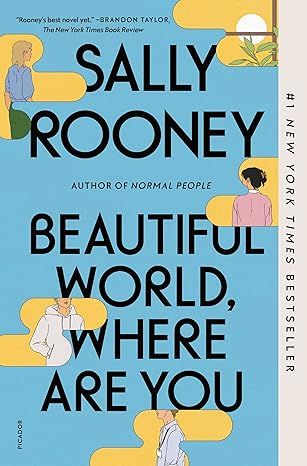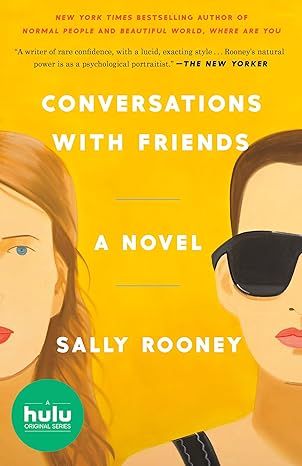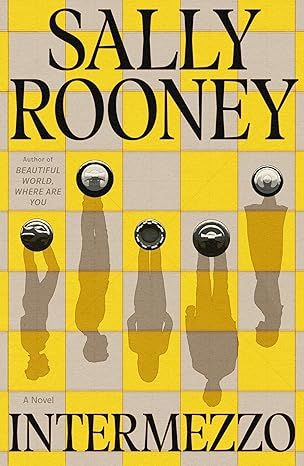Normal People: A Novel
4.1
-
123,460 ratings
NOW AN EMMY-NOMINATED HULU ORIGINAL SERIES • NEW YORK TIMES BESTSELLER • LONGLISTED FOR THE BOOKER PRIZE • “A stunning novel about the transformative power of relationships” ( People ) from the author of Conversations with Friends, “a master of the literary page-turner” (J. Courtney Sullivan).
“[A] novel that demands to be read compulsively, in one sitting.”— The Washington Post
ONE OF ENTERTAINMENT WEEKLY ’S TEN BEST NOVELS OF THE DECADE
TEN BEST BOOKS OF THE YEAR: People, Slate, The New York Public Library, Harvard Crimson
Connell and Marianne grew up in the same small town, but the similarities end there. At school, Connell is popular and well liked, while Marianne is a loner. But when the two strike up a conversation—awkward but electrifying—something life changing begins.
A year later, they’re both studying at Trinity College in Dublin. Marianne has found her feet in a new social world while Connell hangs at the sidelines, shy and uncertain. Throughout their years at university, Marianne and Connell circle one another, straying toward other people and possibilities but always magnetically, irresistibly drawn back together. And as she veers into self-destruction and he begins to� search for meaning elsewhere, each must confront how far they are willing to go to save the other.
Normal People is the story of mutual fascination, friendship, and love. It takes us from that first conversation to the years beyond, in the company of two people who try to stay apart but find that they can’t.
WINNER: The British Book Award, The Costa Book Award, The An Post Irish Novel of the Year, Sunday Times Young Writer of the Year Award
BEST BOOKS OF THE YEAR: The New York Times , The New York Times Book Review, Oprah Daily, Time, NPR, The Washington Post, Vogue, Esquire, Glamour, Elle, Marie Claire, Vox, The Paris Review, Good Housekeeping, Town & Country
Read more
Kindle
$12.99
Available instantly
Audiobook
$0.99
with membership trial
Hardcover
$15.51
Paperback
$10.00
Ships from
Amazon.com
Payment
Secure transaction
ISBN-10
1984822187
ISBN-13
978-1984822185
Print length
304 pages
Language
English
Publisher
Crown
Publication date
February 17, 2020
Dimensions
5.2 x 0.68 x 8 inches
Item weight
7.6 ounces
Popular highlights in this book
She believes Marianne lacks warmth, by which she means the ability to beg for love from people who hate her.
Highlighted by 7,694 Kindle readers
Connell always gets what he wants, and then feels sorry for himself when what he wants doesn’t make him happy.
Highlighted by 7,384 Kindle readers
Connell wished he knew how other people conducted their private lives, so that he could copy from example.
Highlighted by 5,415 Kindle readers
Product details
ASIN :
B07FS25XTW
File size :
3132 KB
Text-to-speech :
Enabled
Enhanced typesetting :
Enabled
X-Ray :
Enabled
Word wise :
Enabled
Editorial reviews
Review
“[Rooney] has invented a sensibility entirely of her own: sunny and sharp, free of artifice but overflowing with wisdom and intensity. . . . The novel touches on class, politics, and power dynamics and brims with the sparky, witty conversation that Rooney’s fans will recognize.”—Vogue
“A future classic.�”—The Guardian
“Rooney is a tough girl; her papercut-sharp sensibility is much more akin to writers like Rachel Kushner, Mary Gaitskill, and the pre–Manhattan Beach Jennifer Egan. . . . Normal People is a nuanced and flinty love story about two young people who ‘get’ each other, despite class differences and the interference of their own vigorous personal demons. But honestly, Sally Rooney could write a novel about bath mats and I’d still read it. She’s that good and that singular a writer.”—Maureen Corrigan, NPR’s Fresh Air
“[Rooney] has written two fresh and accessible novels. . . . There is so much to say about Rooney’s fiction—in my experience, when people who’ve read her meet they tend to peel off into corners to talk.”—Dwight Garner, The New York Times
“[Rooney’s] two carefully observed and gentle comedies of manners . . . are tender portraits of Irish college students. . . . Remarkably precise—she captures meticulously the way a generation raised on social data thinks and talks.”—New York Review of Books
“Normal People tackles millennial concerns with nineteenth-century wit . . . the millennial generation would no doubt be happy to accept her as its spokesperson were she so inclined.”—Elle
“I’m transfixed by the way Rooney works, and I’m hardly the only one . . . like any confident couturier, she’s slicing the free flow of words into the perfect shape. . . . She writes about tricky commonplace things (text messages, sex) with a familiarity no one else has.”—The Paris Review
“Funny and intellectually agile . . . [combines] deft social observation—especially of shifts of power between individuals and groups—with acute feeling . . . [Rooney is] a master of the kind of millennial deadpan that appears to skewer a whole life and personality in a sentence or two.”—Harper’s Magazine
“Beautifully observed . . . crackles with vivid insight into what it means to be young and in love today.”��—Esquire
“I went into a tunnel with this book and didn’t want to come out. Absolutely engrossing and surprisingly heart-breaking with more depth, subtlety, and insight than any one novel deserves. Young love is a subject of much scorn, but Rooney understands the cataclysmic effects our youth has on the people we become. She has restored not only love’s dignity, but also its significance.”—Stephanie Danler, author of Sweetbitter
“Masterfully done. The quality of Rooney’s writing, particularly in the psychologically wrought sex scenes, cannot be understated as she brilliantly provides a window into her protagonists’ true selves.”—BookPage (starred review)
About the Author
Sally Rooney was born in the west of Ireland in 1991. Her work has appeared in The New Yorker, The New York Times, Granta and The London Review of Books. Winner of the Sunday Times Young Writer of the Year Award, she is the author of Conversations with Friends. In 2019, she was named to the inaugural Time 100 Next list.
Read more
Sample
Excerpt. © Reprinted by permission. All rights reserved.
January 2011
Marianne answers the door when Connell rings the bell. She’s still wearing her school uniform, but she’s taken off the sweater, so it’s just the blouse and skirt, and she has no shoes on, only tights.
Oh, hey, he says.
Come on in.
She turns and walks down the hall. He follows her, closing the door behind him. Down a few steps in the kitchen, his mother Lorraine is peeling off a pair of rubber gloves. Marianne hops onto the countertop and picks up an open jar of chocolate spread, in which she has left a teaspoon.
Marianne was telling me you got your mock results today, Lorraine says.
We got English back, he says. They come back separately. Do you want to head on?
Lorraine folds the rubber gloves up neatly and replaces them below the sink. Then she starts unclipping her hair. To Connell this seems like something she could accomplish in the car.
And I hear you did very well, she says.
He was top of the class, says Marianne.
Right, Connell says. Marianne did pretty good too. Can we go?
Lorraine pauses in the untying of her apron.
I didn’t realize we were in a rush, she says.
He puts his hands in his pockets and suppresses an irritable sigh, but suppresses it with an audible intake of breath, so that it still sounds like a sigh.
I just have to pop up and take a load out of the dryer, says Lorraine. And then we’ll be off. Okay?
He says nothing, merely hanging his head while Lorraine leaves the room.
Do you want some of this? Marianne says.
She’s holding out the jar of chocolate spread. He presses his hands down slightly further into his pockets, as if trying to store his entire body in his pockets all at once.
No, thanks, he says.
Did you get your French results today?
Yesterday.
He puts his back against the fridge and watches her lick the spoon. In school he and Marianne affect not to know each other. People know that Marianne lives in the white mansion with the driveway and that Connell’s mother is a cleaner, but no one knows of the special relationship between these facts.
I got an A1, he says. What did you get in German?
An A1, she says. Are you bragging?
You’re going to get six hundred, are you?
She shrugs. You probably will, she says.
Well, you’re smarter than me.
Don’t feel bad. I’m smarter than everyone.
Marianne is grinning now. She exercises an open contempt for people in school. She has no friends and spends her lunchtimes alone reading novels. A lot of people really hate her. Her father died when she was thirteen and Connell has heard she has a mental illness now or something. It’s true she is the smartest person in school. He dreads being left alone with her like this, but he also finds himself fantasizing about things he could say to impress her.
You’re not top of the class in English, he points out.
She licks her teeth, unconcerned.
Maybe you should give me grinds, Connell, she says.
He feels his ears get hot. She’s probably just being glib and not suggestive, but if she is being suggestive it’s only to degrade him by association, since she is considered an object of disgust. She wears ugly thick-soled flat shoes and doesn’t put makeup on her face. People have said she doesn’t shave her legs or anything. Connell once heard that she spilled chocolate ice cream on herself in the school lunchroom, and she went to the girls’ bathrooms and took her blouse off to wash it in the sink. That’s a popular story about her, everyone has heard it. If she wanted, she could make a big show of saying hello to Connell in school. See you this afternoon, she could say, in front of everyone. Undoubtedly it would put him in an awkward position, which is the kind of thing she usually seems to enjoy. But she has never done it.
What were you talking to Miss Neary about today? says Marianne.
Oh. Nothing. I don’t know. Exams.
Marianne twists the spoon around inside the jar.
Does she fancy you or something? Marianne says.
Connell watches her moving the spoon. His ears still feel very hot.
Why do you say that? he says.
God, you’re not having an affair with her, are you?
Obviously not. Do you think it’s funny joking about that?
Sorry, says Marianne.
She has a focused expression, like she’s looking through his eyes into the back of his head.
You’re right, it’s not funny, she says. I’m sorry.
He nods, looks around the room for a bit, digs the toe of his shoe into a groove between the tiles.
Sometimes I feel like she does act kind of weird around me, he says. But I wouldn’t say that to people or anything.
Even in class I think she’s very flirtatious toward you.
Do you really think that?
Marianne nods. He rubs at his neck. Miss Neary teaches Economics. His supposed feelings for her are widely discussed in school. Some people are even saying that he tried to add her on Facebook, which he didn’t and would never do. Actually he doesn’t do or say anything to her, he just sits there quietly while she does and says things to him. She keeps him back after class sometimes to talk about his life direction, and once she actually touched the knot of his school tie. He can’t tell people about the way she acts because they’ll think he’s trying to brag about it. In class he feels too embarrassed and annoyed to concentrate on the lesson, he just sits there staring at the textbook until the bar graphs start to blur.
People are always going on at me that I fancy her or whatever, he says. But I actually don’t, at all. I mean, you don’t think I’m playing into it when she acts like that, do you?
Not that I’ve seen.
He wipes his palms down on his school shirt unthinkingly. Everyone is so convinced of his attraction to Miss Neary that sometimes he starts to doubt his own instincts about it. What if, at some level above or below his own perception, he does actually desire her? He doesn’t even really know what desire is supposed to feel like. Any time he has had sex in real life, he has found it so stressful as to be largely unpleasant, leading him to suspect that there’s something wrong with him, that he’s unable to be intimate with women, that he’s somehow developmentally impaired. He lies there afterward and thinks: I hated that so much that I feel sick. Is that just the way he is? Is the nausea he feels when Miss Neary leans over his desk actually his way of experiencing a sexual thrill? How would he know?
I could go to Mr. Lyons for you if you want, says Marianne. I won’t say you told me anything, I’ll just say I noticed it myself.
Jesus, no. Definitely not. Don’t say anything about it to anyone, okay?
Okay, all right.
He looks at her to confirm she’s being serious, and then nods.
It’s not your fault she acts like that with you, says Marianne. You’re not doing anything wrong.
Quietly he says: Why does everyone else think I fancy her, then?
Maybe because you blush a lot when she talks to you. But you know, you blush at everything, you just have that complexion.
He gives a short, unhappy laugh. Thanks, he says.
Well, you do.
Yeah, I’m aware.
You’re blushing now actually, says Marianne.
He closes his eyes, pushes his tongue against the roof of his mouth. He can hear Marianne laughing.
Why do you have to be so harsh on people? he says.
I’m not being harsh. I don’t care if you’re blushing, I won’t tell anyone.
Just because you won’t tell people doesn’t mean you can say whatever you want.
Okay, she says. Sorry.
He turns and looks out the window at the garden. Really the garden is more like “grounds.” It includes a tennis court and a large stone statue in the shape of a woman. He looks out at the “grounds” and moves his face close to the cool breath of the glass. When people tell that story about Marianne washing her blouse in the sink, they act like it’s just funny, but Connell thinks the real purpose of the story is something else. Marianne has never been with anyone in school, no one has ever seen her undressed, no one even knows if she likes boys or girls, she won’t tell anyone. People resent that about her, and Connell thinks that’s why they tell the story, as a way of gawking at something they’re not allowed to see.
I don’t want to get into a fight with you, she says.
Read more
About the authors
Sally Rooney
SALLY ROONEY was born in the west of Ireland in 1991. Her work has appeared in The New Yorker, The New York Times, Granta and The London Review of Books. Winner of the Sunday Times Young Writer of the Year Award in 2017, she is the author of Conversations with Friends and the editor of the Irish literary journal The Stinging Fly.
Reviews
Customer reviews
4.1 out of 5
123,460 global ratings
ela
5
Good quality, great price
Reviewed in the United States on October 2, 2024
Verified Purchase
Arrived on time and I decided to get it second-handed, such a great choice, the quality was amazing and I was able to get it for a much nicer price
avis.reads
5
refreshing portrayal of a relationship that is not black and white;
Reviewed in the United States on January 30, 2024
Verified Purchase
5/5 ☆☆☆☆☆ #andreeareviews
I have finally read Normal People! I watched the show last year and loved the refreshing portrayal of a relationship that is not black and white; it’s complex, both joyful and painful, and follows the growth of the protagonists.
Needless to say, I loved the book. I’ve been putting it off because this is the last Rooney novel that I haven’t read, and I am left with a massive book hungover that only another Rooney novel can fix. It’s impossible not to feel with the characters, from the awkwardness of the relationship to the impact of their personal trauma on it. It feels like Rooney reaches into your soul, turns it inside out and says: “Here, deal with this now.”. The writing is deceptively simple yet cuts straight to the heart.
We met Marianne and Connell in high school. On the surface, Marianne is an ostracised, weird girl with no friends and an aloof attitude that puts people off. Connell is a popular guy, having lots of friends and being the object of interest of many girls. Connell’s mother works for Marianne’s household as a housekeeper; thus, Connell meets Marianne outside of school whenever he picks up his mom. Their brief interactions give birth first to a form of hidden friendship that turns into lust and then love as they get closer and more intimate.
Their relationship is complicated in the true sense of the word and is deeply influenced by their trauma. Marianne was physically abused by her father; upon his death, the abuse continued with both her mother and brother physically and emotionally abusing her; she was ignored at home and at school, growing up without any friends and without being loved; in school, she was bullied and ostracised, becoming an apparently cold person, incapable of healthy attachment or love. She does not think she deserves to be loved, and I don’t think she knows what being loved really means.
On the other hand, Connell has grown up with a single mother, never knowing her father. He felt loved and appreciated at home; however, he is an introverted, quiet person; nevertheless, this doesn’t stop him from making friends in school and being easygoing and attractive. Later on, however, in college (they both go to the same college), connecting with people becomes harder, and he feels burdened by his social background, coming from a working-class family and hanging out in a circle of rich individuals (such as Marianne). Their relationship evolves and devolves like a mesmerising dance from youth to young adulthood. They bring complexities into each other’s lives, driven by personal trauma, comfort, and a sense of having found home in that person who knows you and understands you fully. Connell, the quiet, brooding intellect, and Marianne, the sharp, unapologetic force of nature - their dynamic is a study of contrasts.
Connell’s internal struggles, the perpetual feeling of not being “enough”, and Marianne’s journey from isolation to self-discovery and perhaps self-love (I am not certain she reached it by the end of the book, but it does feel like she’s on her way) - Rooney peels back the layers, revealing characters so achingly human. And this is what makes Rooney’s writing stand out for me: the incredibly relatable characters, with awkward moments, misunderstandings, and hardship, to communicate feelings and thoughts. The plot becomes, therefore, a canvas where their insecurities, desires, and mistakes point to a poignant picture of love, friendship, and the quest for identity.
I said it before: Rooney is a master of dissecting the nuances of human connection. The themes of power, vulnerability, and societal expectations are woven into the narrative's fabric. The on-again-off-again nature of Marianne and Connell’s relationship isn’t just about love; it’s a mirror reflecting the intricacies of self-worth, societal pressures, and the messiness of growing up.
The exploration of intimacy, both emotional and physical, is raw and unapologetic. Rooney does not shy away from the uncomfortable, and that’s where the magic happens. The power dynamics at play, the impact of societal expectations on individual choices - it’s a literary feast for readers hungry for substance.
Finally, Normal People is not just a book for me; it’s a mirror reflecting the jagged edges of human relationships. Rooney doesn’t hand you answers on a silver platter; she hands you a mirror and says: “Look closely.”. In the end, you’re left with a breathtaking yet heartbreaking portrait of love and the messy, unfiltered journey toward self-acceptance, pondering long after the final page.
Read more
31 people found this helpful
Penny
5
A masterfully-written novel about young love in the 21st Century
Reviewed in the United States on October 1, 2018
Verified Purchase
Do you ever consider the profound impact significant others have on your life? Decades ago, when our son was toddlerish, my husband and I took him into the country for a weekend. We rented a tiny, Eskom-free stone cottage in a dark valley. One night, with the boy asleep, we sat outside, dazzled by the night sky, and drank a bottle of wine. We’d been a couple for more than a decade by then and somehow began talking about how being together had shaped us as individuals and influenced our life decisions. It was a gentle, but remarkably illuminating discussion for both of us and about both of us. It's a conversation I regularly replay to myself to remember how lucky I am.
I thought a great deal about that night as I read Sally Rooney’s novel, Normal People last week. Normal People tells the story about Marianne and Connell’s relationship, which begins when they’re at school in a small town in West Ireland and continues – on and off – for another four years while they’re at college in Dublin. It’s a tale with so many layers that, while my experience of reading it bordered on compulsive, I find it difficult to analyse – suffice to say that it’s not about the plot; it’s about the characters and their inner lives, and the writing.
Rooney, who is 27-years-old, is widely feted as the next best thing, “one of the most exciting voices to emerge in an already crackerjack new generation of Irish writers”, and a “Salinger for the Snapchat generation”. I don’t dispute the praise. Her writing is extraordinarily elegant. Confident and uncluttered, it conveys an immediacy and ingenuousness that drew me in and held me from beginning to end, which came too soon. The story, I felt – shocked to discover I'd reached the final full stop – was unfinished, there were loose ends to tuck away. But, once I recovered, I realised the way it ends is part of its magic. Real relationships are forever evolving, eternally incomplete, and so it figures that a novel about relationships will be too.
Normal People is told from both Marianne’s and Connell’s points of view. It reminded me how, no matter how well you think you know a person, your perceptions and understanding of what they say and mean can be skewed. The novel also shows how our identity, self-esteem and who we become as adults are bound to our upbringing – indefinitely. Marianne is from a wealthy, but unloving and dysfunctional family. Connell is from a poor, but loving family. It largely shapes who they are and how they relate to the world. The novel also examines the impact of bullying – both on victims and perpetrators.
Ironically, I might not find the book easy to analyse, but I could go on forever, waffling about the many layers in Normal People. I daren’t though because then you might not feel compelled to read the book yourself, which would be a pity. A huge pity. Here’s a tiny sample of the writing to demonstrate what a humungous pity it would be:
“Helen has given Connell a new way to live. It’s as if an impossibly heavy lid has been lifted off his emotional life and suddenly he can breathe fresh air. It is physically possible to type and send a message reading: I love you! It had never seemed possible before, not remotely, but in fact it’s easy. Of course if someone saw the messages he would be embarrassed, but he knows now that this is a normal kind of embarrassment, an almost protective impulse towards a particularly good part of life. He can sit down to dinner with Helen’s parents, he can accompany her to her friends’ parties, he can tolerate the smiling and the exchange of repetitive conversation. He can squeeze her hand while people ask him questions about his future. When she touches him spontaneously, applying a little pressure to his arm, or even reaching to brush a piece of lint off his collar, he feels a rush of pride, and hopes that people are watching them. To be known as her boyfriend plants him firmly in the social world, establishes him as an acceptable person, someone with a particular status, someone whose conversational silences are thoughtful rather than socially awkward."
I’m not sure I feel changed after reading Normal People, but I do feel upgraded. And reminded about how life is a series of relationships, and how a few of them help shape who we are and how we live our lives. And that thinking about that and acknowledging those who positively influence us is important. And yes, Sally Rooney has a fan in me. My current read is her first novel, Conversations with Friends.
Read more
631 people found this helpful
Top Sally Rooney titles
View allSimilar Books

The World Cup Of Everything: Bringing the fun home
4.5
-
714
$1.99
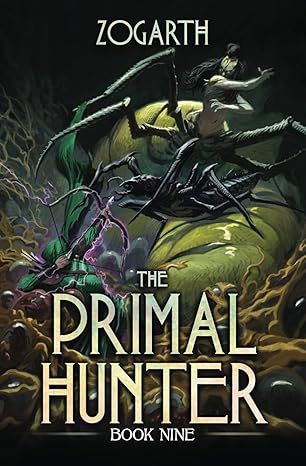
The Primal Hunter 9: A LitRPG Adventure
4.8
-
5,987
$19.99
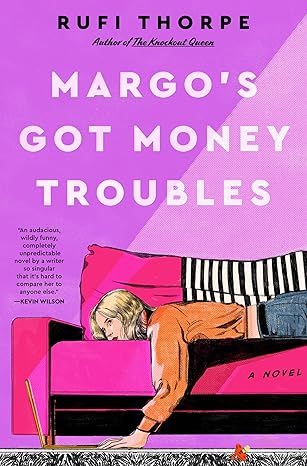
Margo's Got Money Troubles: A Novel
4.2
-
1,732
$14.99

He Who Fights with Monsters: A LitRPG Adventure
4.7
-
16,875
$16.47

The Fellowship Of The Ring: Being the First Part of The Lord of the Rings (The Lord of the Rings, 1)
4.8
-
22,514
$12.08
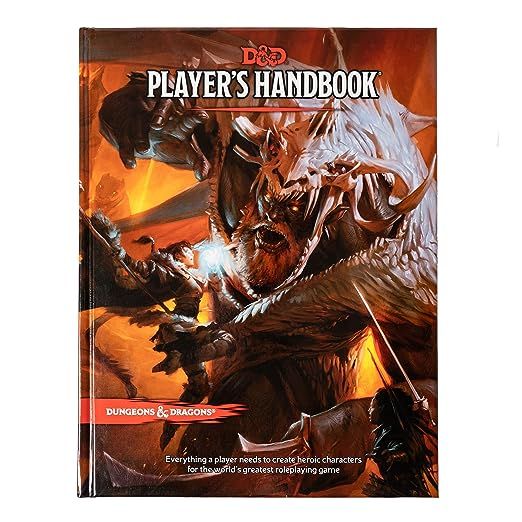
D&D Player’s Handbook (Dungeons & Dragons Core Rulebook)
4.9
-
53,294
$35.49
Best sellers
View all
The Tuscan Child
4.2
-
100,022
$8.39

The Thursday Murder Club: A Novel (A Thursday Murder Club Mystery)
4.3
-
155,575
$6.33

Sapiens: A Brief History of Humankind
4.6
-
140,302
$13.49

The Butterfly Garden (The Collector, 1)
4.3
-
88,556
$9.59

Things We Hide from the Light (Knockemout Series, 2)
4.4
-
94,890
$11.66

The Last Thing He Told Me: A Novel
4.3
-
154,085
$2.99

The Perfect Marriage: A Completely Gripping Psychological Suspense
4.3
-
143,196
$9.47

The Coworker
4.1
-
80,003
$13.48

First Lie Wins: A Novel (Random House Large Print)
4.3
-
54,062
$14.99

Mile High (Windy City Series Book 1)
4.4
-
59,745
$16.19

Layla
4.2
-
107,613
$8.99

The Locked Door
4.4
-
94,673
$8.53
